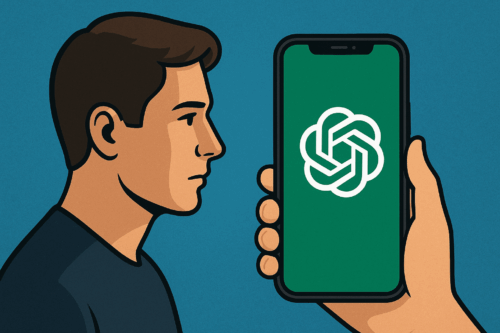
After Teen Suicide Lawsuit, Here Are the New ChatGPT Rules for Minors
OpenAI is tightening how ChatGPT interacts with underage users. The move follows a wrongful death lawsuit filed by the parents of Adam Raine, a teenager who died by suicide after months of chatbot interactions.
New Rules for Teen Users
CEO Sam Altman announced the updated policies on Tuesday. He stressed that protecting minors is now a top priority. ChatGPT will no longer engage in flirtatious talk with underage users. The system will also add stronger guardrails around conversations about suicide and self-harm.
If a teen attempts to use ChatGPT to imagine suicidal scenarios, the service will attempt to alert parents. In severe cases, local authorities may be contacted. OpenAI acknowledged this could be controversial, but the company argues safety outweighs privacy for younger users.
Parents Gain More Control
For the first time, parents will be able to set “blackout hours.” This feature prevents ChatGPT use during certain times, helping families manage online activity. Parents linking their accounts to their child’s profile will also receive alerts if the system detects distress.
These controls aim to give parents more oversight while still allowing teens to use ChatGPT for learning and creativity.
A Policy Shift Under Pressure
The changes arrive on the same day as a Senate Judiciary Committee hearing titled “Examining the Harm of AI Chatbots.” Adam Raine’s father is scheduled to testify alongside other witnesses.
The hearing will also discuss findings from a Reuters investigation that revealed policy documents encouraging sexual conversations with minors. Following the report, Meta updated its chatbot rules, adding more urgency for OpenAI to act.
The Challenge of Age Separation
OpenAI admitted that separating underage users from adults remains a complex technical problem. The company is building a system to determine whether someone is over or under 18. When uncertain, the system will default to stricter protections.
For parents, linking accounts is the most reliable way to ensure their teen is recognized as underage. This link also allows OpenAI to intervene more quickly if the user is believed to be in distress.
Balancing Safety and Privacy
In his post, Altman acknowledged the tension between safety and privacy. “We realize that these principles are in conflict,” he wrote. “Not everyone will agree with how we are resolving that conflict.”
Despite the trade-offs, OpenAI believes stricter safeguards for minors are essential. As chatbots become more powerful, the risks of misuse are increasing. The lawsuit and upcoming government scrutiny make this moment a turning point in how AI firms handle teen users.
